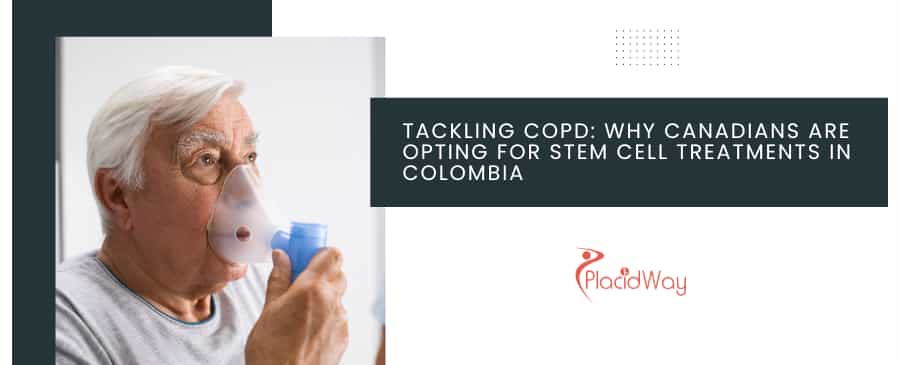
A Comprehensive Analysis of How Successful is Stem Cell Treatment for COPD?
Table of Content
Chronic obstructive pulmonary disease (COPD) is a progressive lung disorder that affects millions of people worldwide. With limited treatment options available, the search for alternative therapies continues. One promising area of research is stem cell therapy. This article will explore the success of stem cell treatment for COPD and provide a comprehensive analysis of the latest research, types of stem cell treatments, and the future of regenerative medicine in managing COPD.
Understanding COPD
COPD is a group of lung diseases characterized by airflow obstruction and inflammation in the airways. The two main conditions that contribute to COPD are chronic bronchitis and emphysema. COPD symptoms include:
- Persistent cough
- Shortness of breath
- Wheezing
- Chest tightness
- Excess mucus production
COPD is primarily caused by smoking, but other factors such as air pollution, occupational exposure to dust and chemicals, and genetic factors can also contribute to the development of the disease.
Overview of Stem Cell Therapy
Stem cell therapy, also known as regenerative medicine, is a rapidly evolving field of medical science that focuses on using stem cells to repair or replace damaged tissues and organs. Stem cells are unique cells with the potential to develop into many different cell types in the body. They serve as a repair system, helping to maintain and regenerate tissues throughout a person’s life.
There are several types of stem cells, including:
- Embryonic stem cells (ESCs): These stem cells are derived from early-stage embryos and have the ability to develop into any cell type in the body.
- Adult stem cells: Found in various tissues throughout the body, adult stem cells are more limited in their potential to differentiate into different cell types. They primarily function to maintain and repair the tissue in which they are found.
- Induced pluripotent stem cells (iPSCs): These are adult cells that have been genetically reprogrammed to function like embryonic stem cells. iPSCs can differentiate into a wide range of cell types.
Stem cell therapy aims to harness the unique properties of stem cells to treat various diseases and conditions, such as neurodegenerative disorders, heart disease, diabetes, and autoimmune diseases. In recent years, there has been growing interest in the potential use of stem cell therapy for chronic obstructive pulmonary disease (COPD), a progressive lung disease characterized by inflammation and irreversible damage to lung tissue.
The success of stem cell treatment for chronic obstructive pulmonary disease (COPD)
The success of stem cell treatment for chronic obstructive pulmonary disease (COPD) is still a topic of ongoing research, and the outcomes have been mixed so far. While some studies have shown promising results, others have not demonstrated significant improvements in lung function, exercise capacity, or quality of life for COPD patients. Here, we discuss the current state of research on stem cell therapy for COPD and the factors that may influence its success.
Potential benefits of stem cell therapy for COPD
Research has primarily focused on using adult stem cells, particularly mesenchymal stem cells (MSCs), for COPD treatment. MSCs have shown potential in reducing inflammation, modulating the immune response, and promoting tissue repair in the lungs. Some studies have reported improvements in lung function, exercise capacity, and quality of life for COPD patients after stem cell treatment.
Research on Stem Cell Treatment for COPD
Multiple preclinical studies and clinical trials have been conducted to evaluate the safety and efficacy of stem cell therapy for COPD. Here are some key findings:
Preclinical Studies
Several preclinical studies using animal models of COPD have demonstrated that MSCs can reduce inflammation, promote tissue repair, and improve lung function. These studies have provided valuable insights into the potential of stem cell therapy for COPD and paved the way for clinical trials in humans.
Clinical Trials
Clinical trials evaluating the safety and efficacy of stem cell therapy for COPD have shown mixed results. Some studies have reported improvements in lung function, exercise capacity, and quality of life following stem cell treatment, while others have shown no significant benefits compared to a placebo group.
One notable study, the AETHER trial, investigated the safety and efficacy of a single infusion of MSCs in patients with moderate to severe COPD. The results showed that the treatment was safe and well-tolerated, but no significant improvements in lung function, exercise capacity, or quality of life were observed.
Limitations and Challenges
Despite the potential promise of stem cell therapy for COPD, several limitations and challenges need to be addressed:
- Lack of standardized protocols: There is a lack of consensus on the optimal stem cell type, dosage, and delivery method for treating COPD. This makes it difficult to compare study outcomes and determine the most effective treatment approach.
- Long-term safety and efficacy: Most clinical trials have focused on short-term outcomes, and the long-term safety and efficacy of stem cell therapy for COPD remain unclear.
- Cost and accessibility: Stem cell therapy is still an experimental treatment, and its high cost and limited availability may restrict its accessibility for many COPD patients.
- Ethical concerns: The use of certain types of stem cells, particularly embryonic stem cells, raises ethical concerns due to their origin from human embryos.
The Future of Stem Cell Treatment for COPD
Despite the limitations and challenges, the potential of stem cell therapy for COPD remains promising. Ongoing research is focused on:
- Developing standardized protocols for stem cell therapy, including optimal cell type, dosage, and delivery method
- Investigating the long-term safety and efficacy of stem cell treatments
- Exploring the use of gene editing technologies, such as CRISPR, to enhance the therapeutic potential of stem cells
As research advances, it is hoped that stem cell therapy will become a viable treatment option for COPD patients in the future, offering improved lung function and quality of life.
FAQs
How successful is stem cell treatment for COPD?
The success of stem cell treatment for COPD remains uncertain, as research has shown mixed results. Some studies have reported improvements in lung function, exercise capacity, and quality of life, while others have shown no significant benefits compared to a placebo group.
What types of stem cells are used for COPD treatment?
Adult stem cells, particularly mesenchymal stem cells (MSCs), have been the primary focus of research for COPD treatment due to their ability to differentiate into various cell types, modulate immune responses, and release anti-inflammatory factors.
Is stem cell therapy for COPD safe?
Current clinical trials have shown that stem cell therapy for COPD is generally safe and well-tolerated. However, the long-term safety and efficacy of stem cell treatment remain unclear, and more research is needed to fully understand the potential risks and benefits.
How much does stem cell therapy for COPD cost?
The cost of stem cell therapy for COPD can vary widely depending on the treatment protocol and the healthcare provider. As an experimental treatment, stem cell therapy is often not covered by insurance, making it an expensive option for many patients.
When will stem cell therapy be available for COPD patients?
It is difficult to predict when stem cell therapy will become a standard treatment option for COPD patients, as more research is needed to establish standardized protocols, long-term safety, and efficacy. As the field of regenerative medicine advances, it is hoped that stem cell therapy will become more accessible and affordable for COPD patients in the future.





